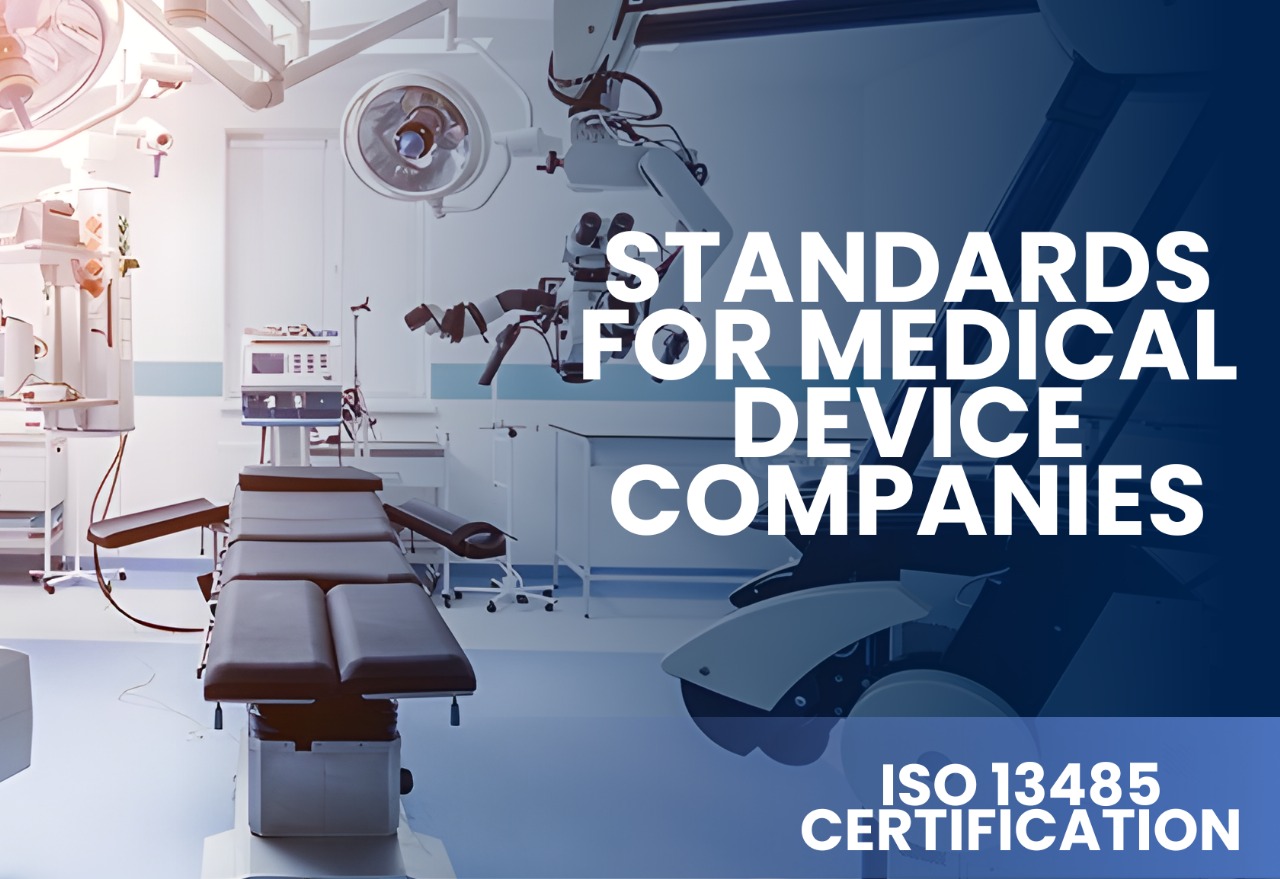ISO 13485 Certification provides a guarantee that new life-saving device from a certain manufacturer complies with all the highest safety, reliability, and regulatory standards.
It assures that organizations involved in the design, production, and distribution of medical devices operate under a structured and reliable Quality Management System (QMS).
Patients and regulators must trust that every life-saving device meets the highest standards of safety, reliability, and compliance.
ISO 13485 & its uniqueness…
Unlike ISO 9001, which covers general quality management, ISO 13485 is specifically tailored for medical device manufacturers, emphasizing patient safety and regulatory compliance.
How to Get ISO 13485 Certification in India ?
For medical device manufacturers in India, achieving certification aims for compliance as well as credibility in the global market. Here’s a simplified approach to achieving the ISO 13485 certification:
· Reviewing QMS documentation to ensure alignment with medical device regulations like CDSCO requirements in India via a Gap Analysis.
· Proper Documentation, including the scope, policies, and objectives of the QMS, and Standard Operating Procedure for production, calibration, sterilization, labelling, etc.
· Implementation of the documented procedures, which involves training of employees, and establishing risk management protocols as per ISO 14971, a related standard for medical device risks.
· Conducting an Internal audit by checking traceability from raw materials to finished products and reviewing whether non-conformance reports and customer complaints are addressed and generating Corrective Action Reports.
· An external certification Audit, with Stage 1 Audit for Assessment of documentation, quality manual, and readiness for the full audit. And a Stage 2 Audit for On-site evaluation of manufacturing, calibration, packaging, and sterilization practices.
Documentation Practices for ISO 13485 Compliance
Robust documentation is the foundation of ISO 13485 compliance and a critical determinant of audit success.
Here are some pointers:
· Put a digital document control system in place to guarantee safe storage, instant access, and trackability of all managed files.
· Set up automatic version control with audit logs to make sure people use the most recent approved SOPs, quality handbooks, and job guides.
· Create approval chains that require signoffs from QA, regulatory teams, and managers before sharing any documents.
Benefits of ISO 13485 Certification for Exporting Medical Devices
There are stringent global trade regulations in the countries in Europe, Canada, and Asia that require imports to comply with ISO 13485. The advantages are:
· Trust of a wide range of stakeholders, ranging from regulatory authorities, the importing organizations, and the distributing organizations, for whom the devices are safe and in accordance with the international standards of safety and performance.
· The certification contributes to the international supply chain, from the sourcing of raw material to the delivery of the end device, showing that the processes are controlled, confirmed, and carried out in accordance with good manufacturing practices.
Example: Indian manufacturers exporting orthopaedic implants to the EU must demonstrate ISO 13485 compliance to secure CE marking and market entry.
Why partner with Global Quality Services?
Partnering with Global Quality Services (GQS) ensures a seamless ISO 13485 certification journey, from gap analysis to final audit readiness.
With extensive experience supporting medical device manufacturers, GQS simplifies complex regulatory requirements and minimizes operational disruption.
Contact GQS today for expert guidance and ensure your medical device company meets global ISO 13485 standards with confidence.
Contact [email protected] 9845313910 for further information
Services Offered :-
India – Karnataka, Chennai, Hyderabad, Mumbai, Kolkata

